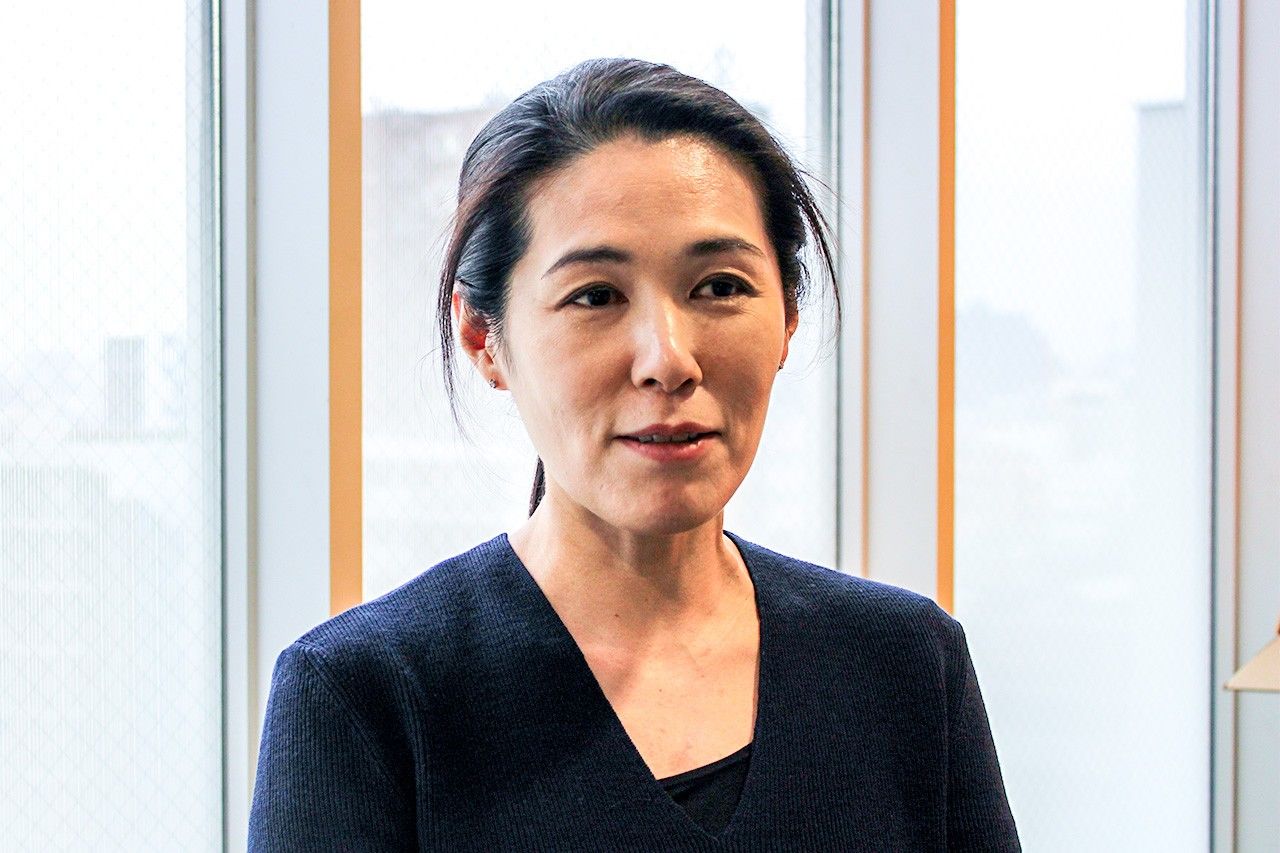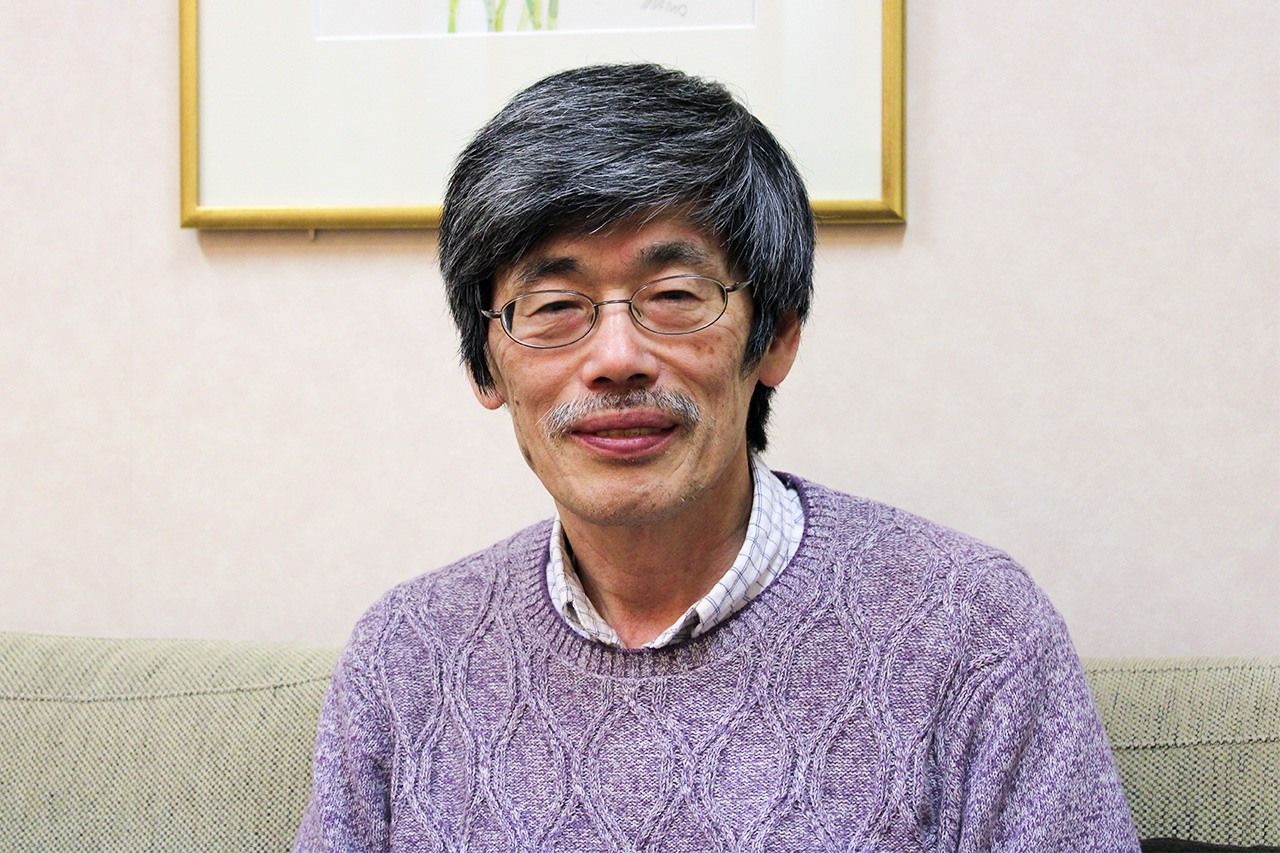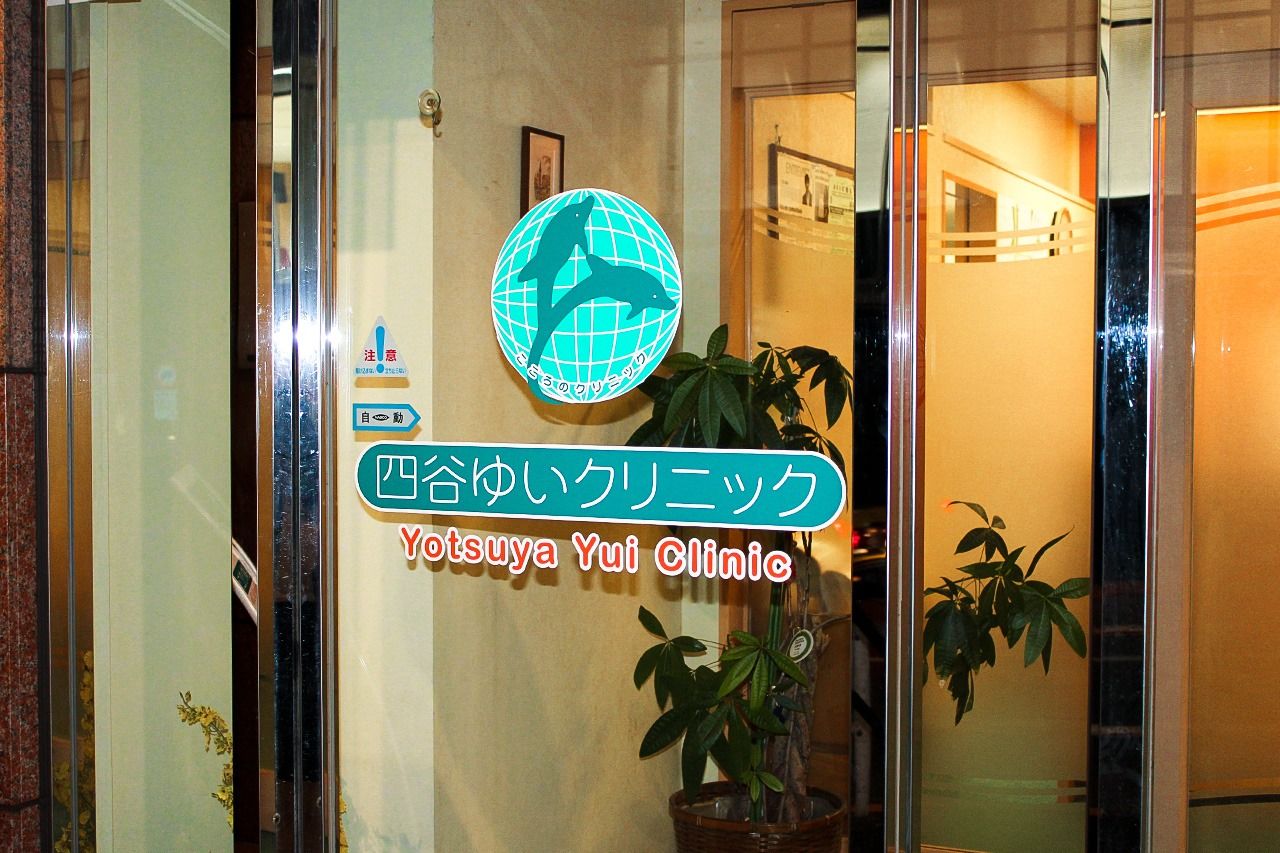
Improving Mental Healthcare Access for Foreigners in Japan
Society Lifestyle Health- English
- 日本語
- 简体字
- 繁體字
- Français
- Español
- العربية
- Русский
Smoother Access to Healthcare Services
Japan is seeing an uptick in mental health problems among its burgeoning foreign population. According to Ukawa Kō, associate professor at Taishō University and director of the Japanese Society of Transcultural Psychiatry, the stress of adjusting to a new culture dramatically increases people’s risk of developing conditions like clinical depression. “Some studies suggest that adjusting to a foreign culture can increase the risk as much as sevenfold,” Ukawa explains. “For many, moving to a foreign country means a loss of social position and lower income, leading to a sense of social defeat and greater stress. While transplants may try their best to adjust, difficulties in adapting to new conditions raise the likelihood that a person will develop mental health problems.”
Ukawa is part of a team of specialists working to bolster mental health support for foreign residents in Japan by raising awareness of the issue and highlighting the need to provide effective care for people who may be at risk.
The group was founded in 1993, a time when the number of international marriages in Japan was increasing. Ukawa says the aim was to help immigrants and refugees living in Japan for a year or more to adjust to society and assist Japanese people returning home after living overseas for work or study. “The need for services like ours is only going to increase in the years to come,” states Ukawa, “particularly as the number of foreign residents in Japan continues to grow. We take a holistic and interdisciplinary approach and draw on experts with experience in diverse fields like medicine, sociology, anthropology, psychiatry, and linguistics.”
As a university professor, Ukawa also teaches classes on the Japanese concepts of tabunka kyōsei, or “multicultural coexistence.” However, she describes her study of the mental health of refugees as her “life’s work.” Ukawa regularly carries out counseling sessions and interviews on behalf of government agencies and NPOs, with the help of psychiatric specialists where necessary, and shares her findings and expertise by giving talks at academic societies and publishing papers in specialist journals. Many of her insights are useful not only in caring for refugees but in providing medical healthcare to foreign residents in general.
Overcoming Barriers
Ukawa says that the first obstacle to overcome in providing any kind of medical assistance to foreigner residents is the language barrier. “An important part of our job is to help people access healthcare services for the first time,” she states. This includes providing information about medical facilities that offer consultations in languages other than Japanese and helping people navigate a medical system that differs from the one in their home country.
Ukawa has conducted a large number of comparative studies overseas that have found differences in how residents approach medical care. “In Canada,” she says, “when people feel unwell they normally visit their family doctor first for a primary consultation and diagnosis. The family doctor will then refer the person to a specialist or hospital if necessary. In Japan, though, the idea of family doctors has not taken root to the same degree and people normally seek out a specialist right from the start.” There are also differences in payment systems. “Canadians pay the equivalent to around ¥6,000 a month per family for health insurance, then everything else—from seeing a doctor to medicine to surgery—is free. Japanese, on the other hand, pay a copayment when visiting the doctor and to filling prescriptions.” Ukawa emphasizes that navigating the differences between two medical systems can be confusing and inhibit foreign resident from fully accessing health services.
Ukawa recalls the case of a person from Ethiopia being treated for insomnia: “After the initial visit, the patient went for a follow-up two weeks later, but there was no improvement. When doctor asked if the person had been taking the prescribed medicine, the patient was confused and claimed that the doctor never provided any. He had assumed that medication was handed out by the doctor at the clinic and didn’t understand that in Japan you must visit the pharmacy to get a prescription filled.”

Taishō University associate professor Ukawa Kō studies problems facing refugees from Vietnam, focusing on the issues faced by women during and after pregnancy.
There are also differences in the ways people from other countries make doctor appointments. Ukawa explains: “Some people from developing countries struggle to understand why they can’t just walk in and see a particular doctor any time they want. It’s not unusual for a person to become upset when we tell them they need to make a reservation and might have to wait as long as a month to speak with a physician.”
Misunderstandings are not limited to foreigners. Ukawa notes that when calling on behalf of foreign residents, clerks at medical facilities upon hearing that the person in need of assistance is not Japanese will sometimes claim that appointments are fully booked. “In such situations, it helps to explain that an interpreter will be on hand or assure the person that the patient has medical insurance,” she says. By allaying concerns, she finds the reservation process goes much smoother.
There are varying approaches to explaining the ins and outs of Japan’s medical system and what kind of information medical facilities need to know about patients, and people helping foreign residents need training to help navigate the various situations.
When dealing with physical illnesses, a patient’s nationality or cultural background makes no difference in arriving at a diagnosis. Mental health problems, however, are different. People describe their symptoms in different ways according to their culture. Although it has become common in the West for people to say they feel “depressed,” residents of Asian and African countries are more likely to describe their symptoms in terms of physical complaints like headaches, stomachaches, or a “lump in the throat.”
“Often, if a doctor can’t find any physical problems they will tell the patient there is nothing wrong with them,” states Ukawa. She warns that in such situations, it is important for the person giving assistance to be aware of what might be happening. “Rather than accompanying the patient on a bout of doctor-hopping, it’s important to consider the possibility of mental illness.”
A vital tool in this is the SIGECAPS protocol, a quick mnemonic aid for assessing eight behavioral markers of depression—sleep, interest, guilt, energy, concentration, appetite, psychomotor, and suicide. Ukawa says that if a person exhibits irregularities in three or more areas over two weeks, it is vital to put them in touch with a mental health specialist for a checkup.
Limited Access to Treatment in Foreign Languages
There are only a few facilities in Japan that offer healthcare in foreign languages, and clinics offering mental health advice in multiple languages are even scarcer. Abe Yū is a doctor at one such facility. A former director of the Japanese Society of Transcultural Psychiatry, he now sees patients at the Yotsuya Yui Clinic in Shinjuku, Tokyo. The facility offers treatment in multiple languages, including English, Spanish, Korean, Portuguese, and Chinese.
Abe has noticed a significant rise in non-Japanese visiting the clinic. “In 2019, we had 480 new patients,” he says. “Around seventy to eighty percent were foreigners, which is a jump from two years ago when the ratio was roughly fifty-fifty.” In particular, there has been an uptick in the number of students from Asian countries like the Philippines where English is spoken, as well as people holding specialty visas such as for highly skilled professionals.
Abe opened the clinic in 2006 with an eye to serving Japan’s burgeoning foreign population, particularly from South American countries. In 1989, he spent a year studying at the University of Madrid, and when Japan revamped its immigration law in 1990, introducing new visas for second- and third-generation descendants of Japanese migrants to South America, his experience abroad prompted him to serve the medical needs of Nikkei patients from countries like Peru and Brazil.
With the government actively promoting tourism and recently revising immigration law to allow greater numbers of workers from overseas, Abe says Japan urgently needs to put in place a proper internationalized healthcare system. A crucial step in this will be to clearly define the roles and responsibilities of large hospitals and smaller private medical facilities.
Abe cites that only a handful of local clinics in Japan are able to provide services in languages other than Japanese and that smaller facilities are better suited to meet the needs of long-term foreign residents. Major hospitals, on the other hand, are better equipped to look after short-term visitors, including people arriving for the Olympics and Paralympics, and individuals coming as part of the health tourism initiative being pushed by the government.
The prospect of dealing with unpaid medical bills have made many clinics wary of foreign patients, but Abe asserts that there is little concern for this as generally people who are in Japan for six months or more, such as foreign students and workers, have health insurance. Instead, he argues that Japan urgently needs to equip its medical system to handle the growing number of non-Japanese residents. “Adjusting to a different culture and language takes time,” he explains. “Some people will make the transition relatively smoothly with only a few rough patches while others will struggle and may develop mental health difficulties. We need to ensure that people get the support they need, whether for conditions arising in Japan or by providing ongoing assistance to people who were already receiving treatment in their home countries.”
Paying for Interpreters
There is a growing need for medical interpreters in clinics and hospitals. National and local government initiatives to train interpreters and provide a fuller range of services at hospitals and clinics have improved the situation. However, interpreting services are not covered by health insurance, leaving medical facilities and patients to shoulder the costs. Many private clinics hesitate to use interpreting services because of the expense, and even if the government trains more interpreters, the opportunities for work remain limited.
Abe uses medical interpreters for some consultations and says there are a few companies that can provide medical interpreting services. “One that we use, we had a hand in launching,” he exclaims. Abe employs a Portuguese-speaking staff member who comes in on Saturdays, and on other days the clinic relies on a video remote interpretation service. However, Abe says it involves a charge of ¥1,000 for 30 minutes. ”Many patients don’t want to pay that, but since it’s nearly impossible to carry out a consultation with a new patient using over-the-phone interpreting, I normally ask an NPO we work with to provide someone who can interpret in person.”

Abe Yū opened Yotsuya Yui Clinic in 2006.
Abe says it is up to the national government to put a system in place to train and dispatch medical interpreters, adding that the national government should also cover the costs of hiring interpreters. He also stresses that healthcare workers need training to help them communicate effectively with foreign patients and interpreters in a clinical setting. However, he emphasizes that relying on interpreters alone will not be enough and that there is a growing need to have a receptionist and other staff who can help patients in languages like English.
“Our clinic has more than a decade of accumulated experience and is staffed with a multilingual team consisting of doctors, nurses, clinical psychotherapist, and office staff,” states Abe. He says he has benefited from the growing number of people interested in working in a multicultural environment. “We work with a psychologists who studied Spanish at the Tokyo University of Foreign Languages and Ritsumeikan University.” Other members of the diverse, multilingual team include a Nikkei from South America who speak Portuguese, a Chinese-speaking graduate of the Tokyo University of Foreign Languages, and a doctor who speaks Korean.
Although more people are interested in helping foreign patients, there is currently a lack of opportunities for people to put their skills to use. “I’m sure there are untapped reserves of professionals like clinical psychotherapists who want to work in a more culturally diverse environment,” says Abe. “But there aren’t enough clinics and hospitals where they can put their skills to use. We need to increase the number of facilities that can provide multi-language medical and mental care as quickly as possible.”
(Originally published in Japanese. Interview and text by Itakura Kimie of Nippon.com. Banner photo: © PIXTA.)
foreign workers immigration healthcare foreign residents mental health
